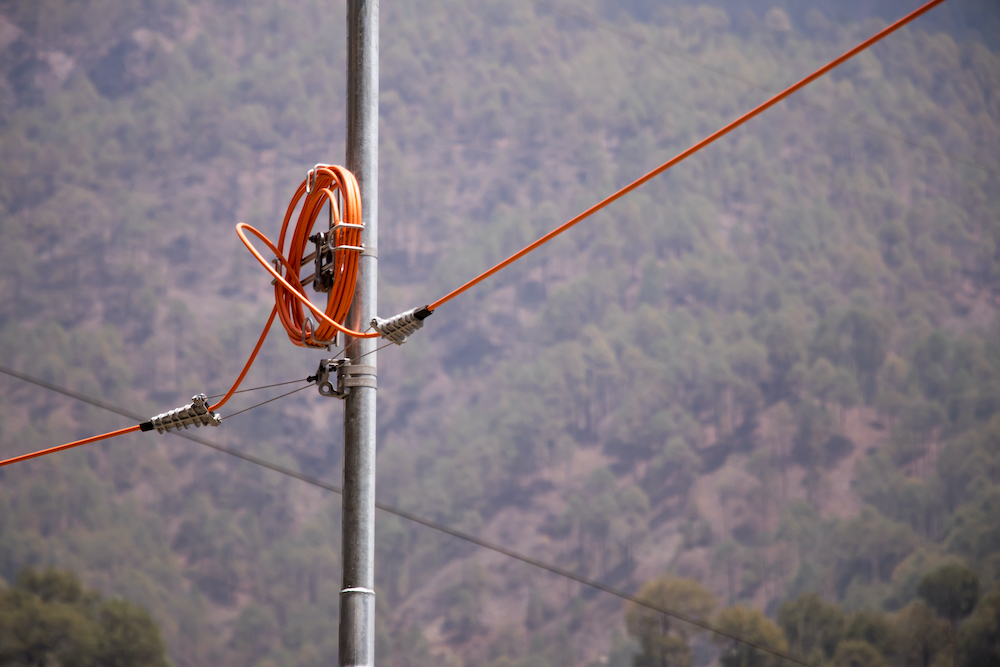
- Details
- By Tribal Business News Staff
- Economic Development
The awarded projects include everything from new fiber backhaul to adoption assistance, such as helping to pay monthly internet bills for users on fixed incomes. This latest dispersal brings the TBCP to $1.76 billion awarded, nearing the $1.98 billion mark for the first funding opportunity issued in 2021.
The Blue Lake Rancheria received $493,000, which will help fund a feasibility study and eventual construction of a 2.2-mile, 48-strand fiber loop across contiguous reservation lands along with equipment to distribute a 2.5 GHz signal over their service area. In total, the project will serve 45 unserved households, 15 unserved tribal anchor institutions, and eight unserved tribal businesses.
“The Blue Lake Rancheria (BLR) is grateful,” said Tribal Administrator Jason Ramos in a statement. “The Tribal Broadband Connectivity Program will help modernize BLR’s online connectivity, which is important for future economic development and educational-related opportunities for tribal members and the local community.”
Over in the Bridgeport Indian Colony, roughly $355,000 will fund a set of feasibility and planning studies to map out the need and cost for reaching a last-mile fiber network to 25 households on the tribe’s reservation. Bridgeport Indian Colony chairman Herbert Glazier called the study a way of “bettering the quality of living on the reservation” for many people who don’t have internet service at all.
“With the help of this grant, our Tribal Members will be able to have reliable connectivity in which they will be able to communicate with their doctors through tele-med,” Glazier said in a statement. “Living in a rural area, especially during winter when the weather is extremely hard for transportation or road closures.”
For the Kashia Band of Pomo Indians, roughly $495,500 will help provide equipment and subsidies to get tribal citizens, in particular elders and transitional housing residents, online. That includes paying people’s monthly internet costs and supplying elders with iPads.
That ought to help with everything from distance learning to telehealth, said Chairman Reno Keoni Franklin - a common refrain among tribes building new connectivity on their reservations in the wake of COVID-19.
“We appreciate the commitment of the Tribal Broadband Connectivity and Nation-to-Nation Coordination Division at NTIA as we worked together to reach this point, and we are eager to begin deploying these funds to improve our Tribal Members’ quality of life as soon as possible,” Franklin said in a statement. “The NTIA Broadband grant funding will make a huge difference for our Tribal community.”
The Resighini Rancheria will leverage roughly $500,000 to complete requisite studies for a hybrid solution utilizing last-mile hard lines and fixed wireless connectivity across the reservation, directly benefiting ten tribal households, the Lena Reed McCovey Community Center, and the Cher’ere Campground and RV Park.
“As a rural Tribe where zero households have access to the internet and our tribal office connectivity is severely lacking, we are very excited to receive these planning dollars to identify a path forward to close the digital divide for our Tribal community,” said Chairperson Fawn Murphy in a statement.
Finally, the Wiyot Tribe will leverage roughly $500,000 to pre-pay for gigabit fiber service, giving users access to a “basic utility” where that access did not exist before, said Wiyot Tribal Chair Theodore Hernandez.
“Our people have been faced with high prices and lack of access for a long time, and that prevents inclusion in our modern era,” Hernandez said. “Access to high speed Internet will improve access to education for our school-age and college students, and we will be able to provide better medical services through telehealth at our Wellness center.”
NTIA’s latest announcement points to a winding down of the original funding opportunity. Initially, the TBCP allocated $980 million for awards but received $5 billion in asks through applicant projects, according to prior Tribal Business News reporting.
The Infrastructure Investment and Jobs Act of 2022 allocated a further $2 billion to the program - half of which bolstered the initial funding opportunity and half of which has been reserved for an as-yet-unannounced second funding opportunity, which was originally scheduled to launch last fall.
